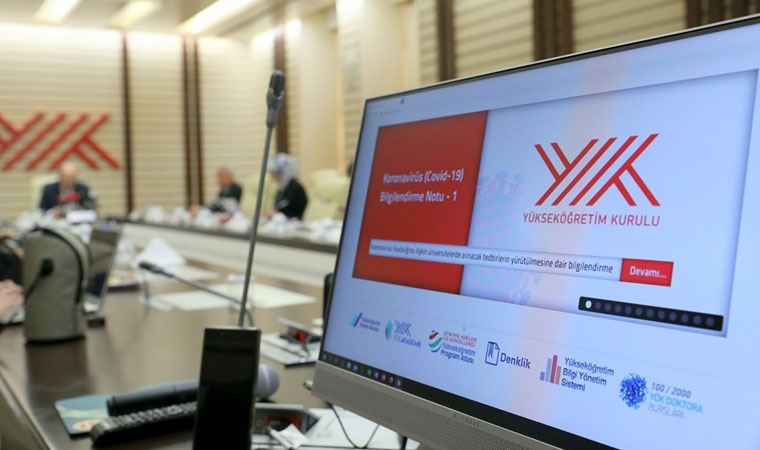

University rankings originated in the United States, which has over 4000 “universities”. In the US, there is neither a central authority for higher education nor central placement: Universities handle their own admissions. University education is expensive and consumers need to assess the quality of the service. Therefore, there is a great need for university rankings. Although rankings grew out of this need, universities from around the world as well as Turkish universities show great interest in the ranking systems.
International students contributed 45 billion dolars to the U.S. economy in 2018, according to the U.S. Department of Commerce. (Contrast this with the total higher education budget of Turkey, around 4.5 billion dollars). Note that 1-2 % of international students in the US are from Turkey. International students are indispensible for the American higher education system. The magazine US News has been publishing the international index of university rankings since 2014. It not the only one: Times Higher Education (THE) and Quacquarelli Symonds (QS) are other university ranking organizations with international focus.
What are the criteria for University rankings?
The most important criterion for rankings is reputation: Its share varies between 25 to 50 percent in different rankings. A questionnaire is sent to 20-25 thousand people, mostly academicians, asking: “What are the best universities in the world?” Typically people name between 10 to 20 universities. If you are among those, your reputation score is high. How does a correspondent from, say the US, Australia, China, or even the Middle East, know the name of a Turkish university? This is the trick: University administrators have to work hard, writing to alumni and colleagues; asking them to fill the questionnaire. Some even use consulting services for scoring high in the rankings.
The second most important criterion is citation impact. Its share is high in all ranking systems, varying between 20 to 50 percent. What is the number of citations to papers published by the faculty?
Other criteria are statistics like ratios of faculty to students, research budget, numbers of international students and faculty. The criteria change from year to year since universities try to game the ranking system.
Gaming the ranking system
The most common trick is double appointments: You pay a star professor, who is actually employed somewhere else, to come and lecture for a few weeks. This brings you the publications and citations. Saudi Universities have such a list of Nobel Prize holders. A small private university in Turkey uses this technique to boost its citation score and boasts scores better than Oxford!
Do these scores and rankings really mean anything? Yes, because if you are a high quality institution with a large budget, small student body, large body of high caliber faculty, you come up high on the rakings. However, it is also possible to game the rankings and score high as described above. Even if nothing is done to fool the system, it is possible to accidentally go up 500 places and fall down in a few years. In 2014 and 2015, many universities from Turkey were in the first 300. One Turkish university even showed up in the first 100. Then, all Turkish universities fell by 400-500 places in a few years.
Why did Turkish universities rise in the rankings?
Let us be fair and state this fact: The budgets of Turkish universities are not large enough to play in the league of the first 100. The annual budget of Bogazici University is around 50 million dollars at best. This is the budget of a large lab in a world class university. University budgets are in the ten figures. Therefore, our budgets should increase by 200 to 300 times to play in that league. Then how did we manage to score in the first 100? Because our faculty is world class and our citation scores are good. Occasionally, some faculty members take part in big discoveries and this carries us up: In 2012, the ATLAS and CMS experiments showed the presence of a hypothesized particle, the Higgs boson. Many Turkish scientists took part in these experiments and contributed to the high impact publications that reported on this discovery. The impact of these publications carried our universities’ scores up.
Why did Turkish universities fall in the rankings?
Turkish universities fell the same way Turkey fell in all rankings. The gross national product of Turkey was 950 billion dollars in 2013. In 2020, it fell to 720 billion dollars. In 2013, Turkey was a hybrid regime, but closer to a flawed democracy (score more than 6) with a score of 5.6. In 2018, it is at the border of an authoritarian regime (score less than 4), with a score of 4.09. We see the impact of this fall on our reputation scores.
In 2013, the faculty could still elect their university rectors. Now, a person lacking credentials to teach in English is appointed as faculty by the Higher Education Council. This person, who does not have the proficiency to become a student in Bogazici University, is now an administrator responsible for graduate education and research. World class faculty are harassed by investigations and forced to go abroad. Those that speak out for quality education are threatened with new investigations for “turning their backs to the administration”. Do we need other reasons? Turkish universities fall in the rankings because Turkey does the opposite of what we should be doing.


